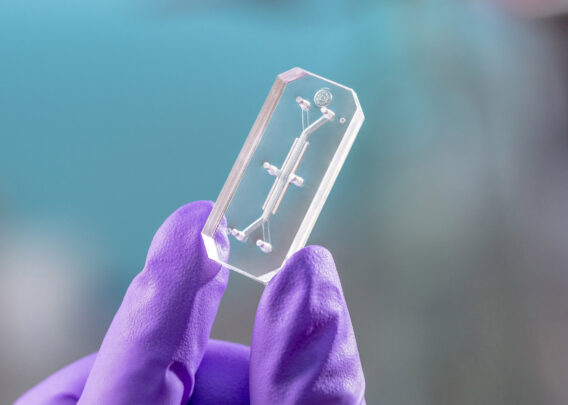On March 10th, 2021 Rep. Alcee L. Hastings (D-Fla.) and Citizens for Alternatives to Animal Research (CAARE) hosted the “21st Century Alternatives to Animals in Biomedical Research” virtual briefing in support of the Humane Research and Testing Act, re-introduced by representatives Hastings and Vern Buchanan (R-Fla.). Attending staffers had the opportunity to hear from a variety of scientific and medical experts and renowned primatologist Jane Goodall about the need to explore alternatives to animal models for biomedical research. Don Ingber, Scientific Founder of Emulate, spoke about how organ-on-a-chip technology can overcome many of the scientific inadequacies and ethical concerns associated with animal models. Together, the speakers highlighted many opportunities to improve drug discovery that will come from creating a National Center for Alternatives to Research and Testing as part of NIH. The message was clear — the use of animal studies and testing is not only inhumane and expensive, but it also doesn’t produce human-relevant data. More compelling human-relevant testing solutions, like Emulate Organ-Chips, are now available.

Dr. Jane Goodall, founder of the Jane Goodall Institute, began the briefing by recounting one of the “worst days of [her] life:” when she visited a laboratory in the 1980s that used chimpanzees as test subjects. Dr. Goodall stressed that animal testing foundationally violates the rights of animals by subjecting them to a life of captivity and testing that could induce pain and fear in them. “Animal models really aren’t the answer,” she said.
In addition to their ethical implications, animal studies have proven themselves insufficient in addressing today’s complex public health concerns, according to Paul Locke, JD, DrPH, Associate Professor at the Johns Hopkins Bloomberg School of Public Health and affiliate of the Center for Alternatives to Animals. Locke discussed how more sophisticated testing techniques can better imitate human biological processes and will facilitate the development of novel drugs and therapies with improved accuracy and efficiency. He emphasized that “research has shown us that non-animal methods are definitely the way to go.”
Emulate Scientific Founder and Board Member Don Ingber presented about the benefits of organ-on-a-chip technology in his capacity as the Director of the Wyss Institute for Biologically Inspired Engineering at Harvard University. He discussed how Organs-on-Chips can be a solution to the demonstrated need for sophisticated, human-focused modeling in biomedical research. He showed attendees animated models of the organ-on-a-chip models and videos of experiment data to demonstrate how organ-on-a-chip technology can replicate and illustrate human biological functions.
One field that could especially benefit from non-animal research methods is cancer research. “Cancer treatment has remained paleolithic,” noted oncologist Anza Raza, MD, Chan Soon-Shiong Professor of Medicine and Director of the MDS Center at Columbia University and author of the book The First Cell: And the Human Costs of Pursuing Cancer to the Last. Dr. Raza described how cancer treatment has seen little change in approach since the 1970s with the rudimentary tools of surgery, chemotherapy and radiation. Expressing disgust for new cancer therapies which only work for a subset of patients and often only for a short time, she noted “95 percent of experimental drugs fail, and the other 5 percent should have failed.” Anza views inapplicable animal models as a primary reason for cancer treatment’s stunted progress. She stressed that human-oriented models need to be used to understand cancer and other human diseases.
Finally, Thomas Hartung, MD, PhD, Professor at the Johns Hopkins Bloomberg School of Public Health and Director of the Center for Alternatives to Animals, closed the briefing by stating the importance of the NIH’s role in normalizing new research techniques, and funding research to spur their development and use. He also described the importance of training the next generation of biomedical researchers on the most effective and cutting-edge tools and research methods, which he saw as necessary to making animal models a thing of the past. Please visit house.gov to find your Congressional representative and encourage him or her to support the Humane Research and Testing Act.




